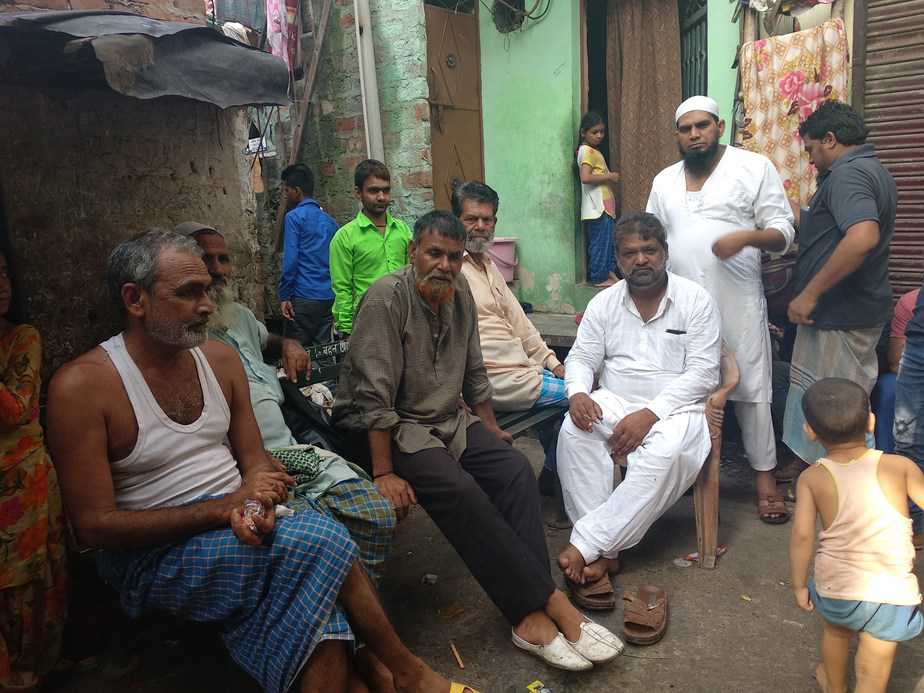
“Our ancestors have been doing magic and monkey shows since the 1800s,” says Nashir Khan, 61, part-time magician on the dying art of magic shows and street monkey shows of Kalandar Colony, in Delhi.
For Khan, owner of a meat shop, doing magic shows is a passion and an art he learnt as a kid from his father, who learnt from his father. He is eloquent on the subject of the government never caring about madaris (people who perform shows with the help of a monkey).
The colony is hard to locate, deep within Delhi’s Dilshad Garden. As you enter the neighbourhood, the labyrinth of little streets is confusing at first, but asking a passer-by can lead you to your destination.
The smell of gutters pervades every nook of the colony, little children doing some random trick on one another give a hint that while the magicians may not have much business today, the enthusiasm is alive, and it really is a colony of magicians and madaris.
“It’s a dying art. But since it’s been handed down through generations, our children love to experiment with it. They think it’s fun,” says Shahid, 30, sitting with a group of men. Very nonchalantly, he starts describing how there is no business left for the magicians, nor do people stop to watch monkey shows on the streets. What was once an art considered worthy to be performed in courtrooms of kings and queens, now barely has an audience to entertain.
Nashir Khan, whom everybody seems to respect, says this is not the only colony where magicians and madaris reside.
According to him, there are 30,000-40,000 villages in India wherein hundreds and hundreds of magicians live. Many of them have resorted to other professions as magic shows basically pay ‘peanuts’, adds Khan.
As for shows involving monkeys, the Wildlife Protection Act (WPA), 1972 says any sort of poaching, hunting, or using the animal for entertainment invites punishment of up to seven years imprisonment.
Khan says after the ban, most of the artists started doing other businesses. Kareem Khan, 40, of Kalendar Colony says, “We are not educated. Doing street shows was the only thing we were taught since childhood and after the ban, most of us struggled to choose other career options.”
Some artists opened small grocery stores inside their homes, some took up driving jobs, some became kabbadiwalah and some opened poultry stores.
Kareem is a full-time auto driver, and performs magic tricks at birthday parties, which is again twice a month. He says people continue to watch magic tricks of foreign artists on YouTube, but don’t appreciate local artists in their own vicinity.
Abdul, who was called to do shows at birthday parties in Chennai, was reluctant to go because of the law in place. “Sometimes people of the animal rights groups are present in the parties or somebody or the other reports you,” says Abdul.
The artists still keep 3-4 monkeys as pets, for the affection hasn’t faded even if the business no longer flourishes. “We feed them more than they feed monkeys in zoos. We treat them with as much care as possible,” says 44-year-old Shameer, a madari.
The gentleman of Kalandar Colony confidently spoke of how the monkeys in their care are in better health than the caged animals. Nashir Khan proudly talks about the meals he gives his monkeys. They get half a kg of dates, 1.5 litres of milk (depending on the monkey’s age) and rotis made of besan. This menu is repeated in the evening, while doubling the amount of milk and dates sometimes.
When asked how they manage to feed the monkey when income from the magic shows is so low, Khan says, “Because we were taught to take care of the monkeys first by our grandfathers.” He says it was because of the monkeys that they managed to survive when they knew nothing else.
Abid, 37, points out that the colony had bears too before the ban, and after the government decided to ban bear shows, the artists were offered a sum of Rs 50,000 if they returned the bears to the government. The artists refused, citing the affection they had for their animals.
“Even though it has been 6-7 years since they took my bear. I’m sure the bear will run up to me after listening to my voice,” says Abid.
Unemployment is the only thing which haunts them daily. Speaking of the future of their children, they say although they study in government schools, with the kind of education system in government schools, there is little chance of them succeeding in life.
“There are some kids here who cannot even write their own names,” says Mukund. He says the teachers don’t come to the school quite often and that adversely impacts the students.
However, for the colony, hope lies in the fact that the kids have inherited the talent of performing magic. “Our kids are born artists. They grasp magic in no time,” says Mukund. He says if one day the industry sees any growth, their kids may have some future — if not, they will continue to perform these tricks in their own homes.
Delhi hosted what organisers describe as the world’s first player auction in golf, launching ‘72…
An elderly woman recalls how her six-year-old granddaughter lay bleeding after a speeding car hit…
Municipal Corporation of Delhi plans a unified policy enabling RWAs to adopt and maintain parks…
A 17-year-old boy allegedly died by suicide after jumping before a moving train at Uttam…
Delhi High Court grants bail to 26-year-old Thar driver accused of mowing down two in…
Two Rohini men arrested for fatally stabbing one person and injuring another during a robbery…